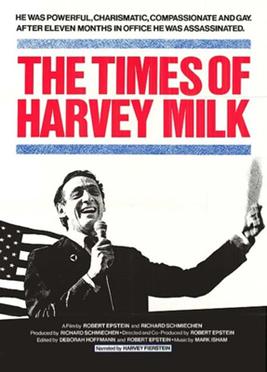Why I Hired A Story Consultant
I hit a serious roadblock editing my own (fifth) documentary. At the time I was teaching editing at UC Berkeley’s #1-ranked documentary program–so you’d think I’d know what I was doing!
But after editing my personal doc for several months in an isolation tank, I’d lost perspective. I couldn’t see a clear storyline for even one of my seven characters!
I needed expert guidance; an outside assessment that I could trust.
So I sought out the most talented story consultant I knew. Deborah Hoffmann (now retired) had edited the Oscar-winning “The Times of Harvey Milk”. Together we crafted a riveting film in two months! My doc went on to screen at more than 50 film festivals and was picked up by Netflix.
How did we do it? And why hadn’t I thought of hiring a story consultant earlier?
Frankly, in 1994–just as “Hoop Dreams” and other character-driven docs launched the so-called golden age of documentary filmmaking–it had never occurred to me!
Even today, many filmmakers don’t think to budget for a story consultant.
As to the secrets of our rapid success? First, I got tremendously motivated knowing that I was in good hands and no longer alone. Always ready with moral support, Hoffmann answered with two thumbs up my first big question: is there even a film here?
Then we worked on the film’s structure. She convinced me to cut 3 characters (ouch), who were not as compelling as I had thought and who were duplicating other characters’ roles.
Next, we created 20-minute sequences for each remaining character, in order to see their story arcs clearly, before weaving the stories together. Again, she cut scenes that were repetitive or down right dull.
I came to trust her so much that I enjoyed killing my darlings with my powerful editorial machete. Exhilarating!
Of course, I had to overcome my hubris.
That included cutting several scenes in this personal documentary in which I (the protagonist) was crying. My mentor helped me write succinct narration that expressed my emotions in a palatable way.
Ah, the arrogance of thinking my plot points and pontifications (about lesbian love lives) would be comprehensible! Many scenes needed clarification, especially if the film was ever to be seen outside its core audience. Narration and text cards clarified plot points that I thought were obvious.
During the fine cut, my veteran editor/story consultant revealed several clever micro-editing tricks that increased the film’s artistry and watch-ability. (These techniques helped me become a better editing teacher and eventually story consultant myself.)
Perhaps most importantly, she guided me to clarify the film’s takeaway in a single sentence. What was I really trying to say? My elevator pitch: “It’s a film about how polyamory can work for some people, but watch out for these pitfalls!”
In the end, I spent $5000 on three sessions with a story consultant. It was all the cash I had at the time. And it was the best investment I made in my forties besides opening an IRA.
To learn more about how a story consultant can help your film, check out this list, geared toward each stage of filmmaking.
